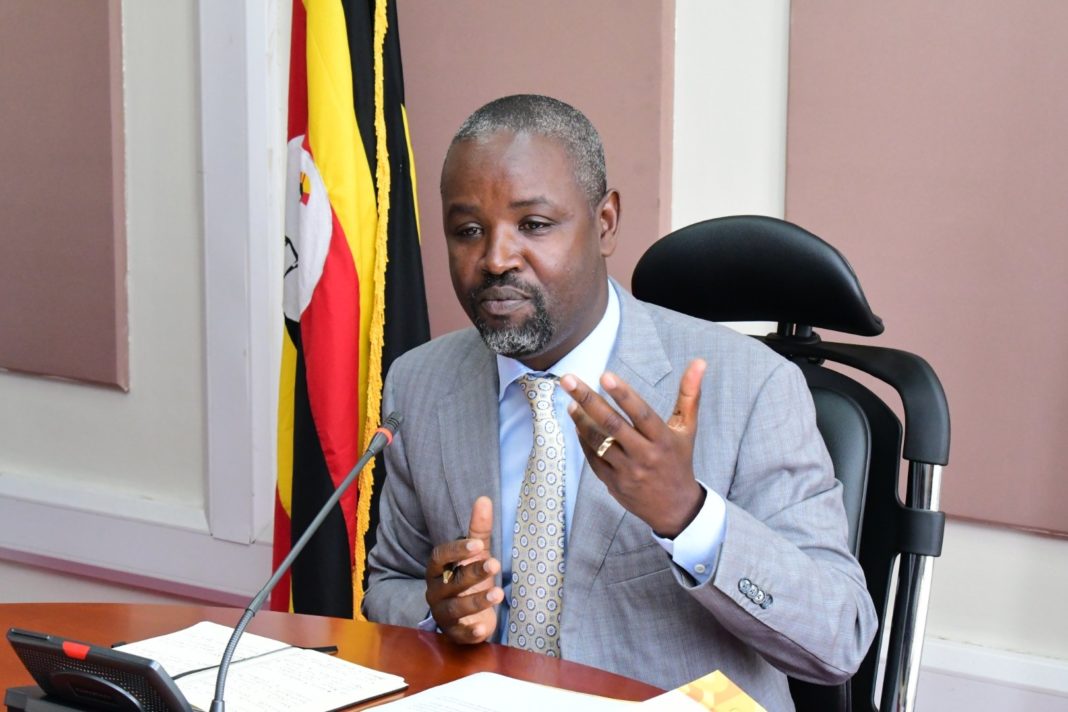The Parliament of Uganda has condemned the motion for a resolution by the European Union Parliament that calls on Uganda and Tanzania to stop the development of the oil and gas projects in the East African region.
The August House claimed that the resolution is based on misinformation and deliberate misrepresentation of key facts on environment and human rights protection. It represents the highest level of neo-colonialism and imperialism against the sovereignty of Uganda and Tanzania.
During the plenary, the Deputy Speaker of Parliament Thomas Tayebwa said that EU’s motion seeks to curtail the progress of Uganda’s oil and gas developments and by extension, the country’s socio-economic growth and development.
He stated that it also seeks to deny Ugandans and East Africans the benefits and opportunities of the oil and gas sector. This represents the highest form of Economic Racism against developing countries, given that:
“Various member states in the European Union continue exploring, developing, and have increased the production and use of fossil fuels in recent months. There are over 9000 oil and gas production licenses in the USA, including plans to drill in Alaska and the Arctic Sea. 53 licenses have recently been issued in the North Sea and Germany has revived its coal plants. In addition, western countries are seeking to import gas from African countries. All this is in a bid to ensure energy security in their respective states. Is energy security a preserve for only the European Union? Does Uganda not have the same right?”
The propaganda largely targets the 1445-kilometer East African Crude Oil Pipeline, which will run for 296 kilometers in Uganda. The EACOP represents less than 0.1% of the operational global pipeline network of 1.18million Kilometres.
Tayebwa said it is imprudent to say that Uganda’s oil projects will exacerbate climate change, yet it is a fact that the EU block with only 10% of the world’s population is responsible for 25% of global emissions, and Africa with 20% of the world’s population is responsible for 3% of emissions. “The EU and other western countries are historically responsible for climate change. Who then should stop or slow down on development of natural resources? Certainly not Africa or Uganda.”
He said over 70% of the persons affected by land acquisition for the projects have been compensated or resettled and are undergoing livelihood improvement projects in agriculture, financial literacy, and vocational skills, among others. Efforts to fully compensate all project-affected persons are ongoing, with cooperation from the local communities and leaders. The land is not utilized by the projects before the compensation processes are concluded, and any related grievances are addressed through a participatory process.
“Colleagues, we are all aware that our Country has been gifted with sizeable oil and gas resources that are already generating and creating value for our people in terms of employment, provision of services and goods, technical and another skilling. These resources will also generate significant revenues for the State, and support petrochemical industrialization and the development of other sectors of the economy such as agriculture, tourism, manufacturing, and health, among others. Also, aware that this House has approved significant investment in Oil Roads and other infrastructure to support the development, it is pertinent that as we have done in the past, we address efforts that aim at frustrating the sovereign right to exploit our resources,” he said.
He said like many African countries, Uganda is a developing country and a sovereign state that has its unique development needs and priorities. “I, therefore, call upon the European Union Parliament to withdraw the motion for a resolution that is against the UN Charter that provides for Uganda’s right to self-determination and sovereignty over its natural resources. This House and through responsible Committees will continue providing oversight, to the oil and gas sector. As such, there is no justifiable basis for the EU Parliament or any other institution to recommend that we leave our resources in the ground for these reasons.”








